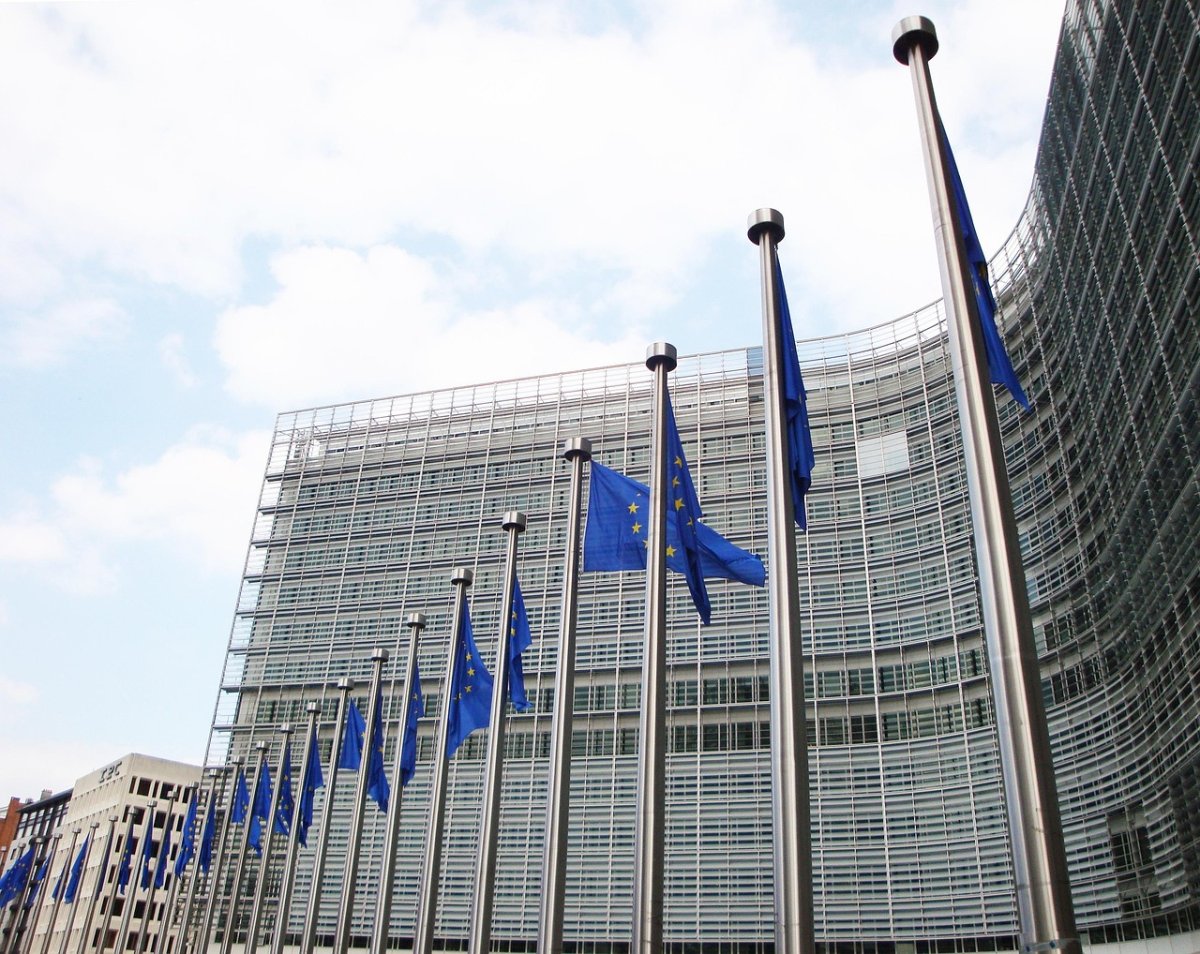Wednesday 12 November - The Culture Compass for Europe was adopted today by the College of Commissioners. The new strategy sets a strategic lens for culture across EU policies, with a special focus on democracy, which is considered by the European Commission as under threat. Following months of public consultations and civil society campaigns, the Culture Compass for Europe prioritizes artistic freedom and fair working conditions for artists and cultural professionals.
Quoting Jean Monnet’s alleged phrase on re-starting the European project from culture, Roxana Mînzatu - Executive Vice-President for Social Rights and Skills, Quality Jobs and Preparedness introduced culture as “our shared values, our freedoms, our identity”, “not as a second or third-tier priority” but as “THE story of Europe”, deserving "budget, our attention" and “our political engagement”.
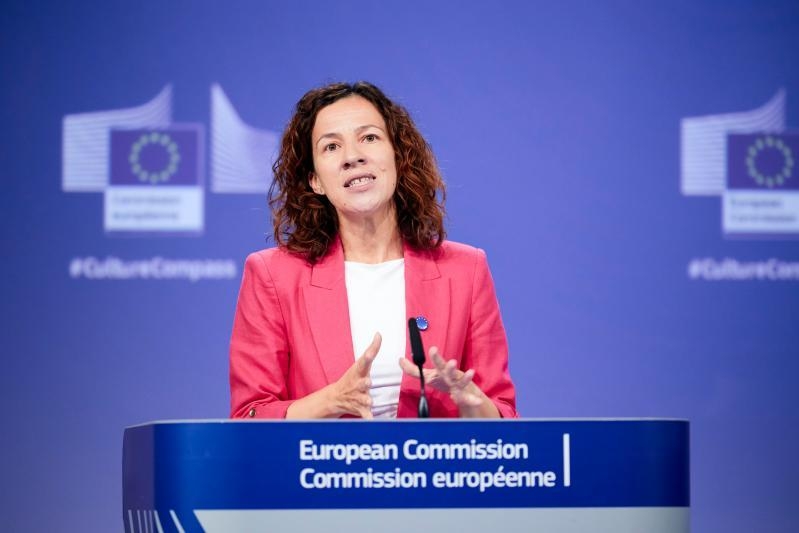
The Executive Vice-President approached culture as a foundation of European identity and as power for growth, innovation and inclusion. She underscored that “culture is inseparable from technology”, while “AI must be a tool for creators and not a threat to their rights”.
She announced a Joint Declaration on 'Europe for Culture - Culture for Europe' as high-level political commitment of the European Parliament, Council and the Commission “in building a future where Europe stands for culture, and culture stands for Europe”. The declaration may be expected before the end of 2025.
"When Culture Wins in Europe, Europe Wins!"
“Culture is our next strategic frontier,” said Glenn Micallef, Commissioner for Intergenerational Fairness, Youth, Culture and Sports, setting the stage for a vision of culture mainstreamed horizontally and at the heart of EU policies, since “When Culture Wins in Europe, Europe Wins!”.
The Commissioner approached a European culture that “creates, works, empowers, connects and wins” and introduced 20 flagship actions. These actions of the Compass are structured under a Vision: Europe for Culture - Culture for Europe, four key directions: Values and Rights/ Artists and People/ Competitiveness, Resilience, Cohesion / International and a final category on Investments.
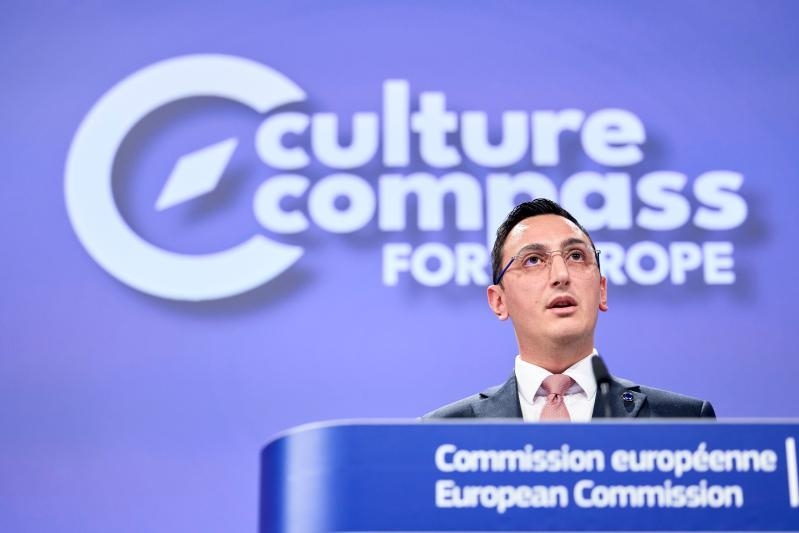
Following Mînzatu’s statement “We stand for artistic freedom. For the right of every artist to create without fear or interference,” Commissioner Micallef affirmed that “Free artists are the voice of democracy”. He announced key actions including a 'State of Culture' in the EU Report to serve as a yearly snapshot on artistic freedom and other culture evolutions in Europe, along with an 'EU Cultural Data Hub' to support informed policymaking with reliable monitoring data, expected the third quarter of 2027 (click on image to enlarge).

As “too many” of the nearly eight million CCS professionals in the EU face insecurity” and “applause does not pay for the rent”, the Commissioner proposed an 'EU Artists Charter' to set out concrete commitments for fair working conditions, to be expected around the second quarter of 2027.
Affirming “creators to remain in control of their content,” the Commissioner introduced an upcoming 'AI Strategy for Culture and Creativity', promoting ethical use of AI and collaboration between the Techs and CCS.
Cultural rights especially for the youth are set as well in the Compass’ spotlight, reflecting EU priorities on youth and drawing from UNESCO and the recent evolutions in MONDIACULT 2025 on cultural rights. “Youth access to culture is a priority. Culture teaches our youth to think critically and shields them from division and extremism. We hope to transform our vision into achievements,” commented the Commissioner during the Q&A session of the press conference.
Media Freedom to strengthen Democracy and Civil Society
The Compass was announced along with and as closely intertwined with two more new strategies. Earlier today, Henna Virkkunen, Executive Vice-President for Tech Sovereignty, Security and Democracy and Michael McGrath, Commissioner for Democracy, Justice, the Rule of Law and Consumer Protection announced the European Democracy Shield and the first ever Civil Society Strategy, as linked with the upcoming Joint Declaration on Culture for Europe and with the proposed AgoraEU programme 2028-2034.
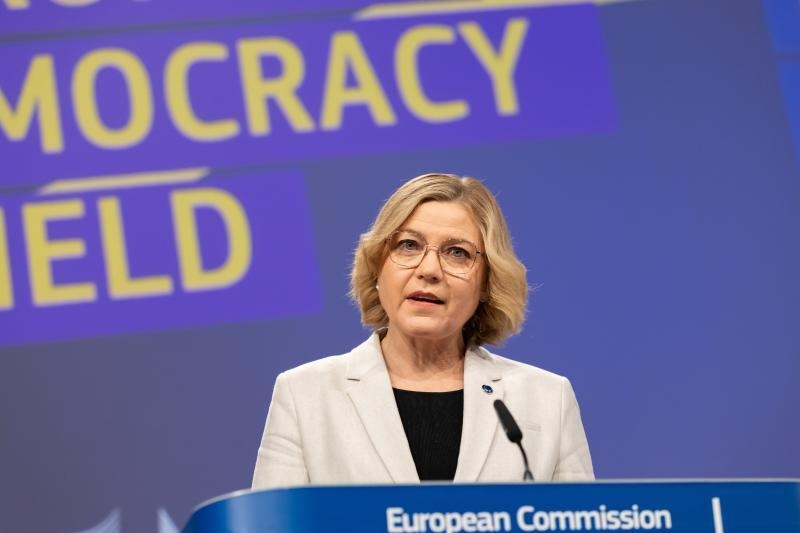
Executive Vice-President Henna Virkkunen, stated that “Our democracy is under pressure and under attack [...] we need to stand up and protect it”. Along similar lines, Commissioner McGrath stated that “The Democracy Shield is about preserving the information space for people to express freely and exercise their democratic rights across Europe” as “our democracy is precious and needs to be protected at all times” and “against online and offline threats”.
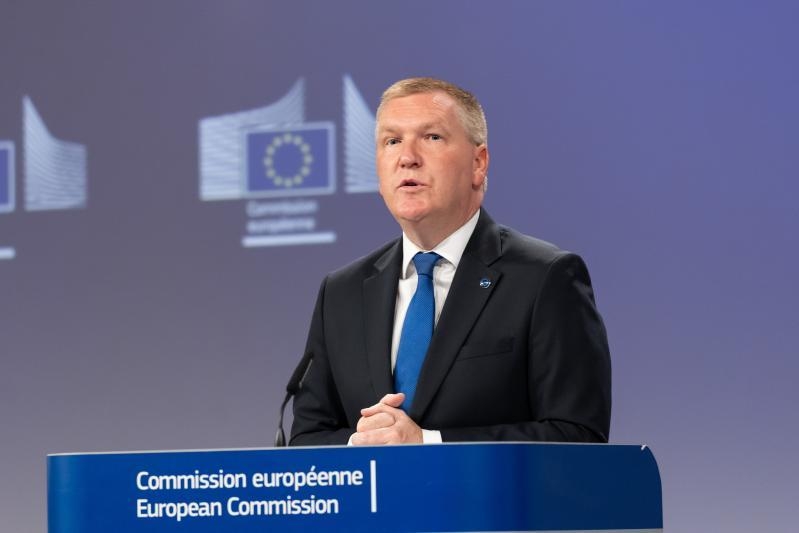
They announced a “New European civil society platform”, to be expected next year and enabling direct consultations with the Commission on EU values and rights. They also announced funding for civil society to help organizations to face political or legal harassment and “stand on their feet”.
Background and Overview
The development of a Culture Compass for Europe was assigned to Commissioner Glenn Micallef in the mission letter for his portfolio, delivered in 2024.
Milestones in the process included the Commission’s call for evidence where feedback by CCS organizations prioritized funding, (artistic) freedom and fair working conditions, the 3Fs of priority for CCS civil society. Further public consultations were organized and dialogues with the Cult Committee and Members of the European Parliament.
Summing up, strengthening links between culture, media, democracy and civil society were expected, as the Culture Compass would reflect the logic of the structure of the AgoraEU, the funding programme in the next MFF 2028-2034, announced in July 2025.
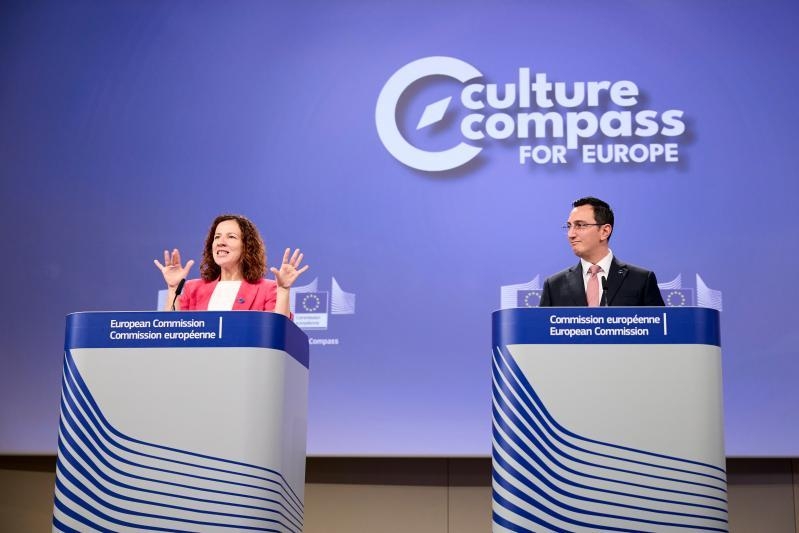
Culture’s role on the competitiveness of the EU was also highlighted, emphasizing the important contribution of the CCS to employment, among other critical factors for the European economy and society.
Underscoring European values as linked with identity and unity, the Compass was introduced as key to European security in a world of geopolitical uncertainty. The idea of “Europe under threat” reaffirms President von der Leyen’s words in SOTEU 2025, though not including an explicit refrence to culture at the time.
Find the press conference here
Header Image by Jai79 from Pixabay - Free for use under the Pixabay Content Licence
Images: Courtesy of the European Commission - (c) European Union, 2025








